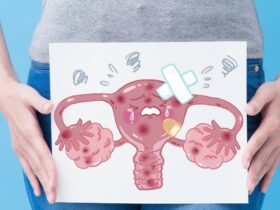United States: It’s more than two decades ago that disturbing results of a groundbreaking women’s health study questioned the safety of menopause hormones, and therefore, some millions of women and their doctors quit the drugs – a practice that still persists today.
More about the finding
After a Women’s Health Initiative (WHI) follow-up for the long term proved the perception was clearly magnified. The newly identified research showed that women under 60 and with an acute case of menopause are more prone to preferably use hormonal medicines to manage the symptoms of menopause, which include hot flashes and night sweats.
The new research, which found its way to JAMA Journal, uncovered that young women who went through menopause and observed the symptoms can begin taking hormone remedies but with lower risks of unwanted effects.

Joann Manson, chief of the division of preventive medicine at Brigham and Women’s Hospital and the paper’s first author, said, “Women in early menopause with bothersome symptoms should not be afraid to take hormone therapy to treat them, and clinicians should not be afraid to prescribe them,” as the Washington Post reported.
What is the importance of the recent study?
The significance of the WHI and its consequential role in women’s health cannot be underestimated. The study enrolled over 160 thousand women after menopause, the age of whom was supposed to be between 50 and 79.
Yet in 2002, a part of the study of the menopause hormone trial was suddenly terminated as a result of data that suggested that women in the hormone group had a greater risk of cardiovascular disease, stroke, pulmonary embolism, and breast cancer compared with the use of placebos.
It led to the medical care of a great number of women being disrupted, due to which they had to withdraw from the usage of hormones. Many women had been told by doctors that not only do hormones relieve symptoms but also prevent myocardial infarction, which was widely believed at the time.
It was not only their retirement but also the women in the baby boomer and Gen X generations who were facing the complicated symptoms of menopause, starting from hot flashes, night sweats, and insomnia to emotional changes, suddenly without modern medication and hormone treatments that would otherwise help them.
More about the details of the study findings
Besides that, later it would be clear that the design of the research, that it included a large cohort of older women, could have biased the results.
Risks were closely connected to the female gender, especially to those of advanced age (menopause), because these women rarely suffered from symptoms for which treatment with hormone replacement drugs was required. On the contrary, the younger women in our study exhibited remarkable resilience.
Now, twenty years following the WHI, a long-term follow-up of the females in the WHI study shows the drugs are a relatively safe option for the short-term treatment of menopausal symptoms in women under age 60.
Generally, they’re considered addictive medications and aren’t generally recommended for long-term use to avoid heart attack, dementia, and other chronic diseases.











Leave a Reply